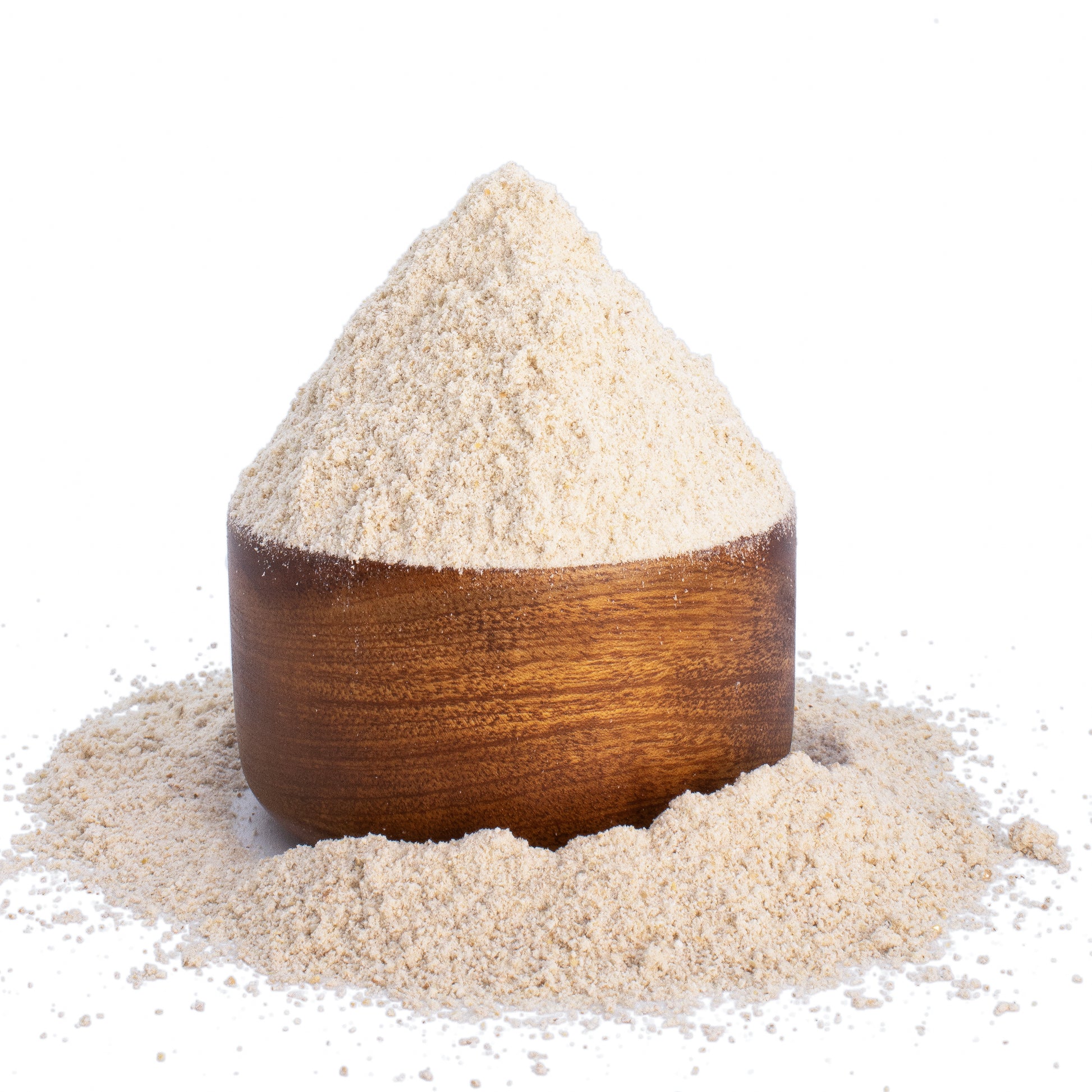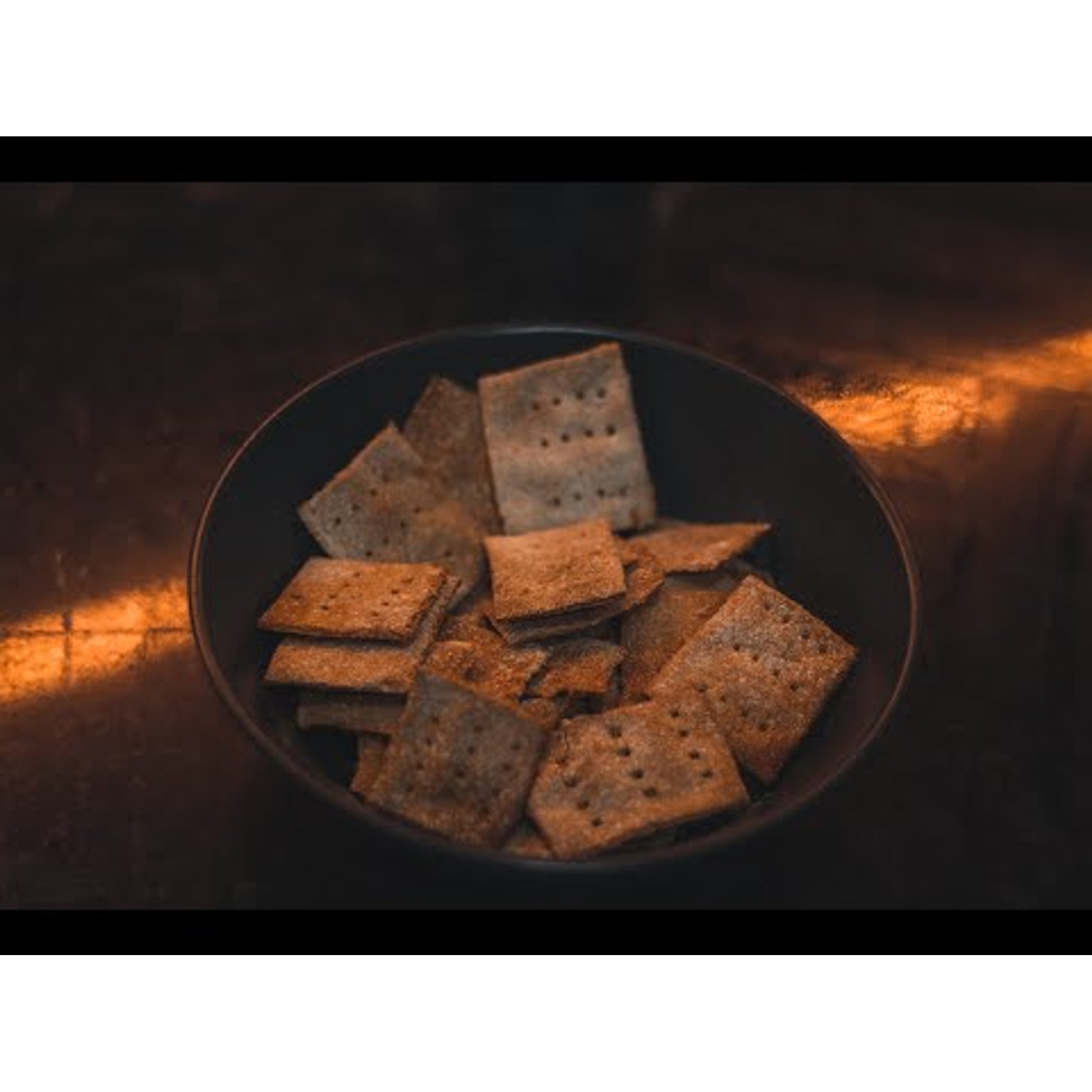Sattvic Foods
Himalayan Rye Flour | Rich in Dietary Fibre
Couldn't load pickup availability
- Free sample is a single serving (3-10 g) for trial
- Get a free sample for every Rs. 500 of purchase
- Add a product other than items being purchased
- Free Sample must be added before Checkout
Rye flour is made from the rye grain, a resilient cereal grain known for its deep, earthy flavour and impressive nutritional profile. Unlike wheat flour, rye flour is darker and denser, with a slightly tangy taste. It has a unique composition that affects its baking properties; for instance, it contains less gluten than wheat, which results in a denser crumb and a more compact structure in baked goods. Rye flour is often used in traditional bread recipes, such as pumpernickel and sourdough, and is praised for its ability to produce a moist, flavourful loaf with a chewy texture.
Rye’s dietary fibre content is the highest among common cereals. Rye bread contains about three times more fibre than white wheat bread.
Rye flour is rich in protein containing all 9 essential amino acids, Vitamins E, and B, and several minerals including selenium, magnesium, copper, zinc, and phosphorus.
- Sourced from the Himalayas: Our rye grains are grown organically by independent farmers in the pristine Himalayan Mountains near Kullu, Himachal Pradesh, ensuring exceptional freshness and flavour.
- Raw and Untreated: Unlike heat-treated alternatives, our rye flour retains its natural goodness for superior taste and quality.
- Stone-Ground for Nutrition: We use traditional stone grinding methods to preserve the maximum nutritional value, giving you a healthier and more wholesome product.
Try this recipe by one of our consumers who has used our flour and made Rye bread
A popular grain and staple in Eastern Europe, it grows just as easily in our Himalayas. Our Rye is farmed at altitudes as high as 4,400 meters. This magical grain grows in much poorer soils than those necessary for most cereal grains and is hence grown organically by default. Rye plant also has superior tolerance to cold than most other grains.
- Bake Hearty Bread: Perfect for making dark, aromatic loaves with a rich, earthy flavour.
- Create Pizza Crust: Use it to make a rustic, flavourful base for your favourite toppings.
- Make Pancakes & Crepes: Add a wholesome twist to your breakfast favourites.
- Prepare Savory Crackers: Ideal for crunchy, nutrient-packed snacks.
Check out these hand-picked recipes featuring our own flour! Rye flour Bread and Rye flour crackers
- Maintain Cholesterol Levels- Researchers have found that rye is more effective at lowering cholesterol levels than wheat and reduces total and LDL (bad) cholesterol by up to 14% and 12%, respectively. This effect is likely due to rye's high soluble fibre content that can help remove cholesterol-rich bile from your blood and body.
- Control Blood Pressure- It is packed with magnesium, which helps control blood pressure and optimize heart health.
- Reduce Inflammation- The insulin responses after the consumption of meals comprising Rye were better and helped reduce inflammation in the body.
- Promote Weight Health- Rye is extremely rich in good carbohydrates and is a very hardy grain thus, it facilitates weight loss.
Click here and read more on rye flour benefits
Rye flour is a type of flour made from ground rye grains. It has a denser texture and darker colour than wheat flour and is commonly used in traditional bread recipes like pumpernickel and sourdough.
2. What are the different types of rye flour?
Rye flour comes in various types, including light rye flour, medium rye flour and dark rye flour. The difference lies in the degree of refinement and the amount of bran and germ retained in the flour.
3. Is rye flour gluten-free?
No, rye flour is not gluten-free. It contains less gluten than wheat flour, but it still has enough gluten to cause issues for people with celiac disease or gluten sensitivity.
4. How does rye flour compare to wheat flour in baking?
Rye flour has a different gluten structure, making it less elastic than wheat flour. This results in denser, heavier bread with a tighter crumb. Rye flour also absorbs more water, which can affect the texture and proofing time of baked goods.
5. What are the health benefits of rye flour?
Rye flour is rich in dietary fibre, protein, and essential nutrients like magnesium, iron, and B vitamins. It supports heart health, aids in digestion, and can help regulate blood sugar levels.
6. How to use rye flour?
Rye flour is commonly used in bread making, particularly in traditional recipes like rye bread, pumpernickel, and sourdough. It is also used to make rye rackers and pancakes and as a thickener in soups and sauces. Use to make multigrain roti.
7. What is the best way to store rye flour?
Rye flour should be stored in an airtight container in a cool, dry place. Because it contains natural oils, it can go rancid more quickly than other flours, so it’s best to store it in the refrigerator or freezer for a longer shelf life.
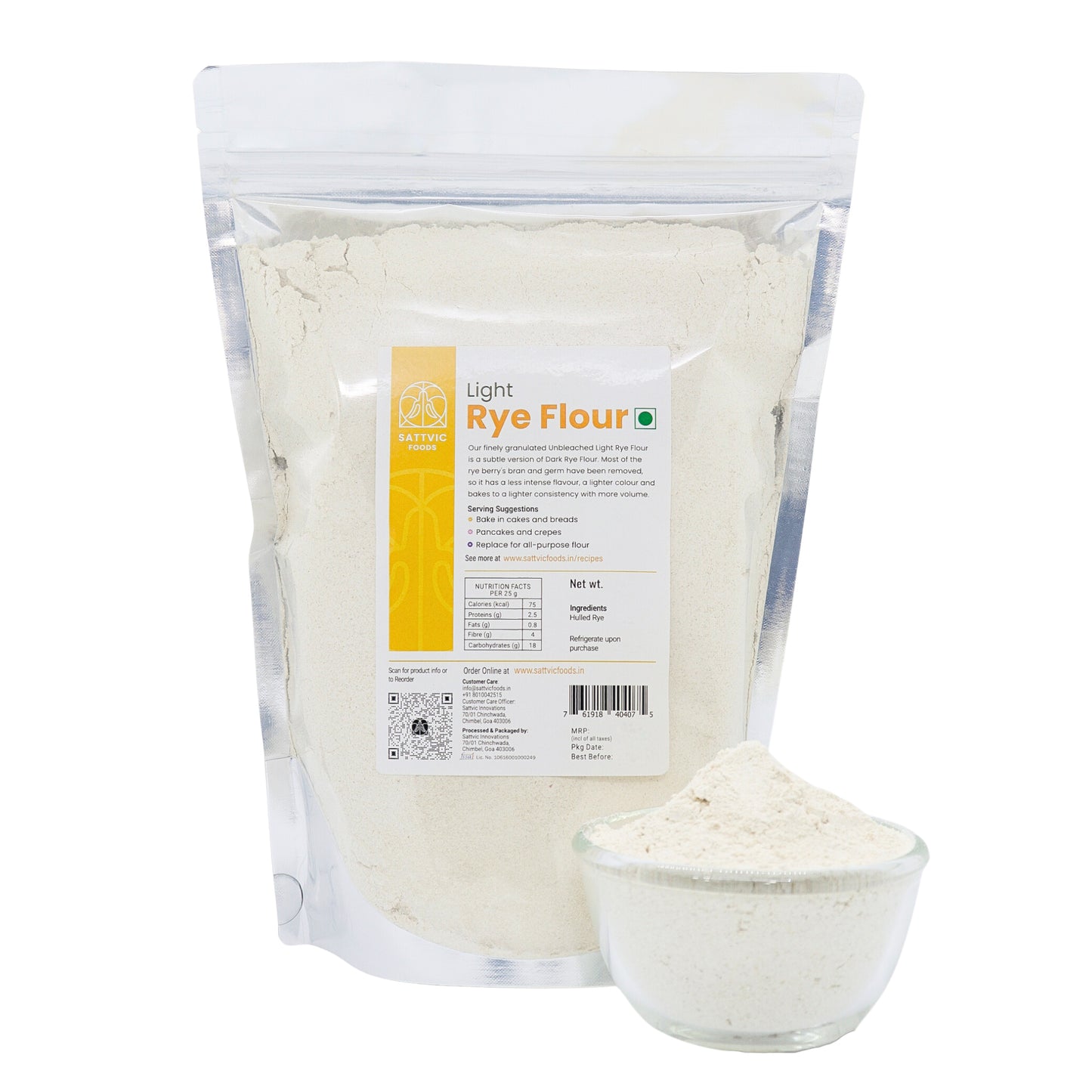
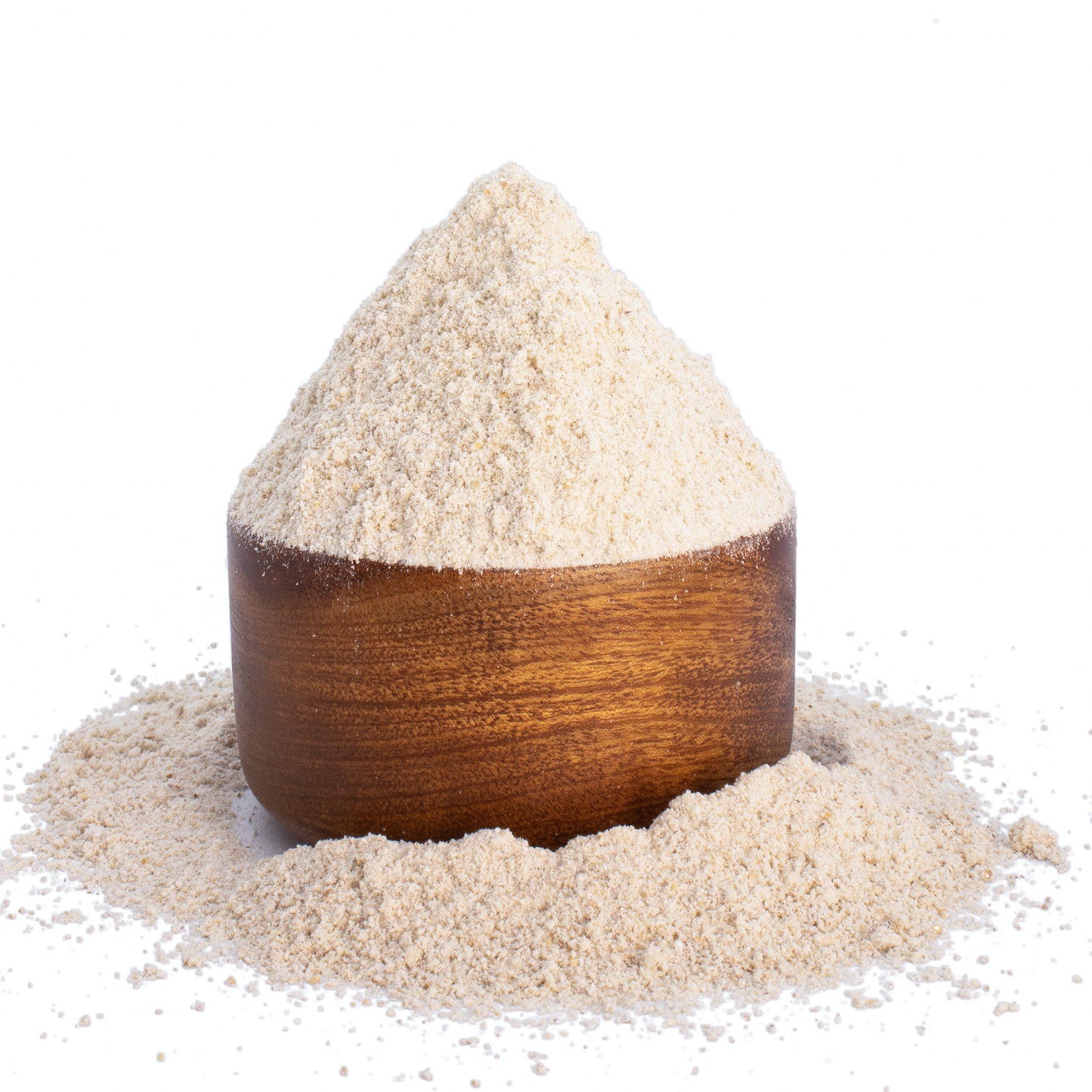
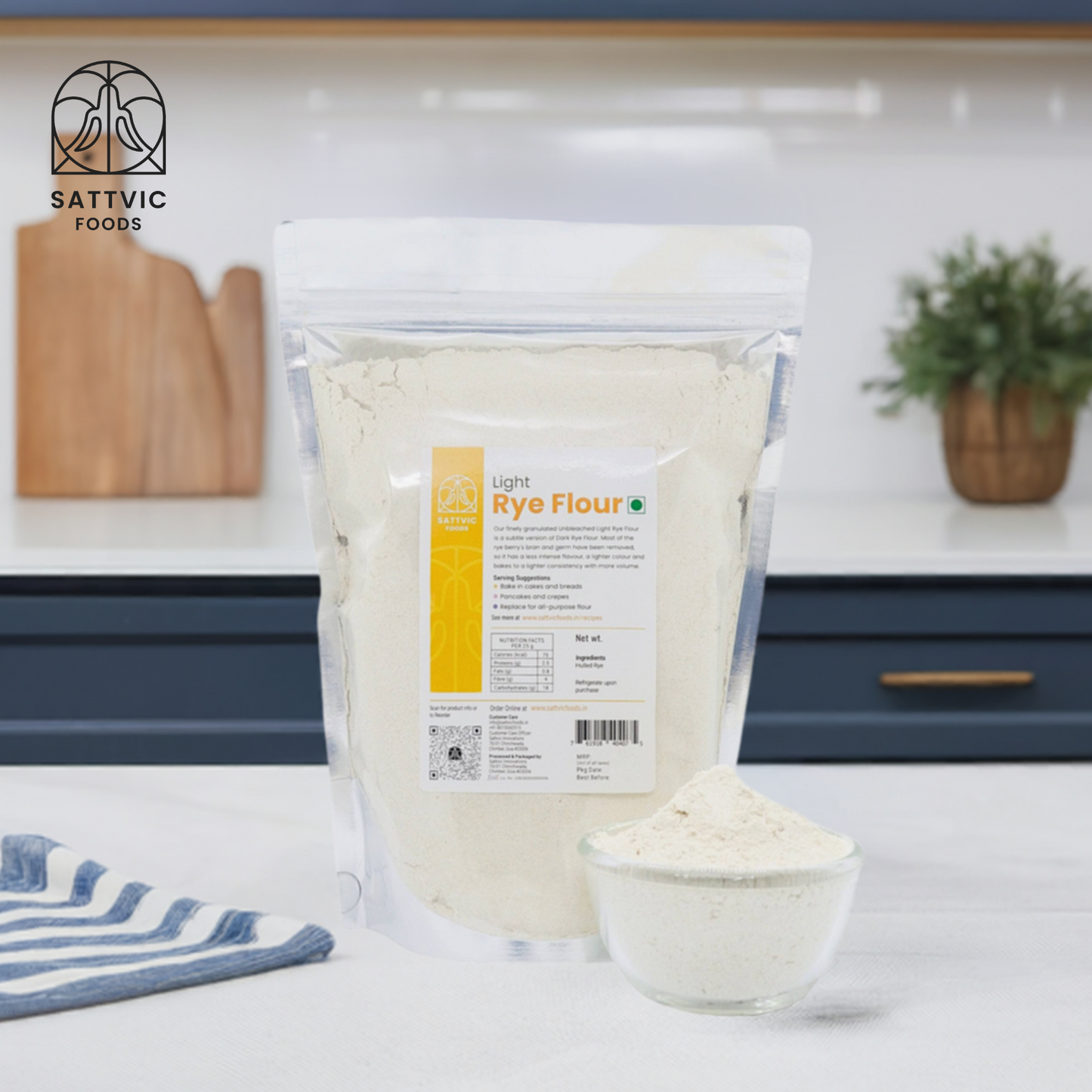
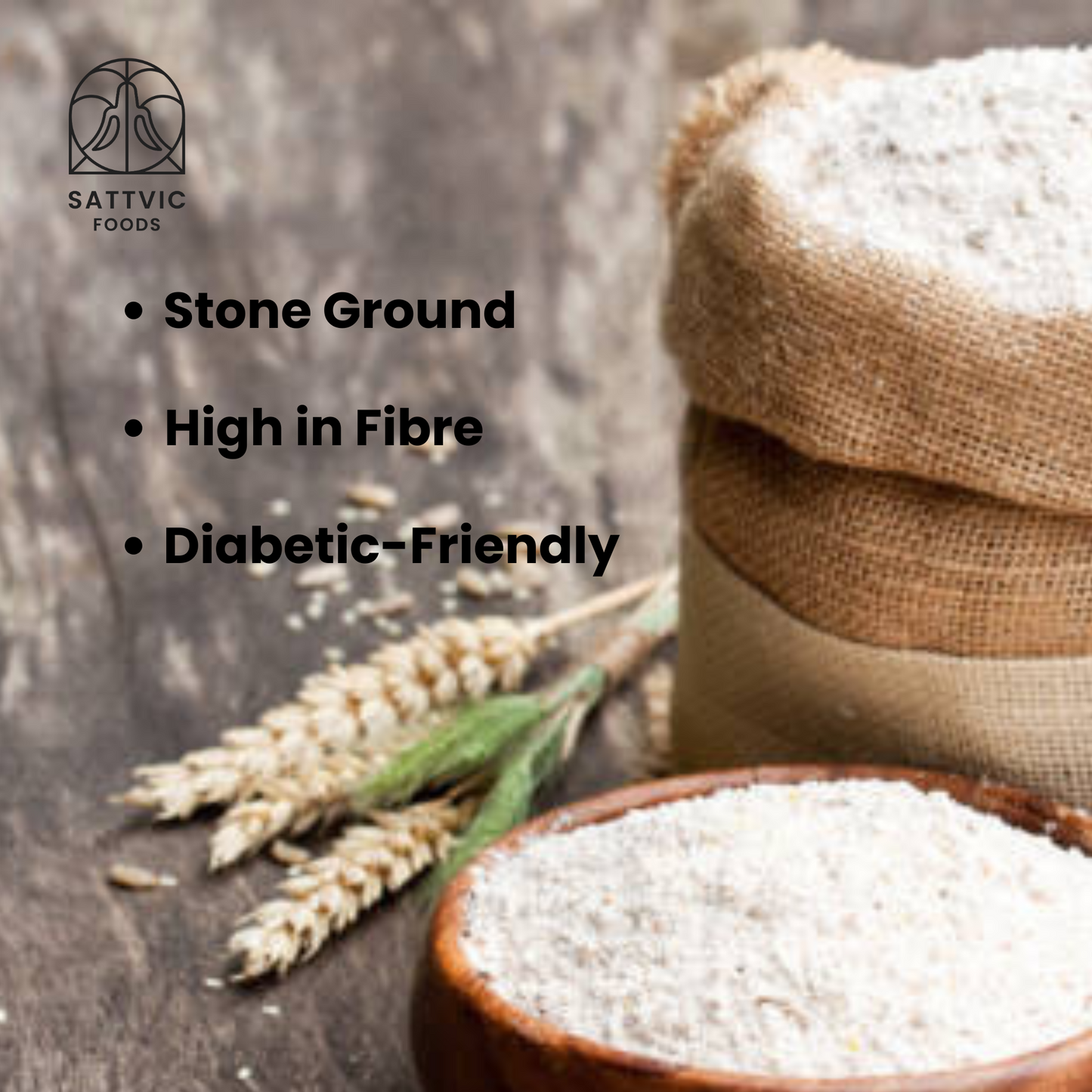
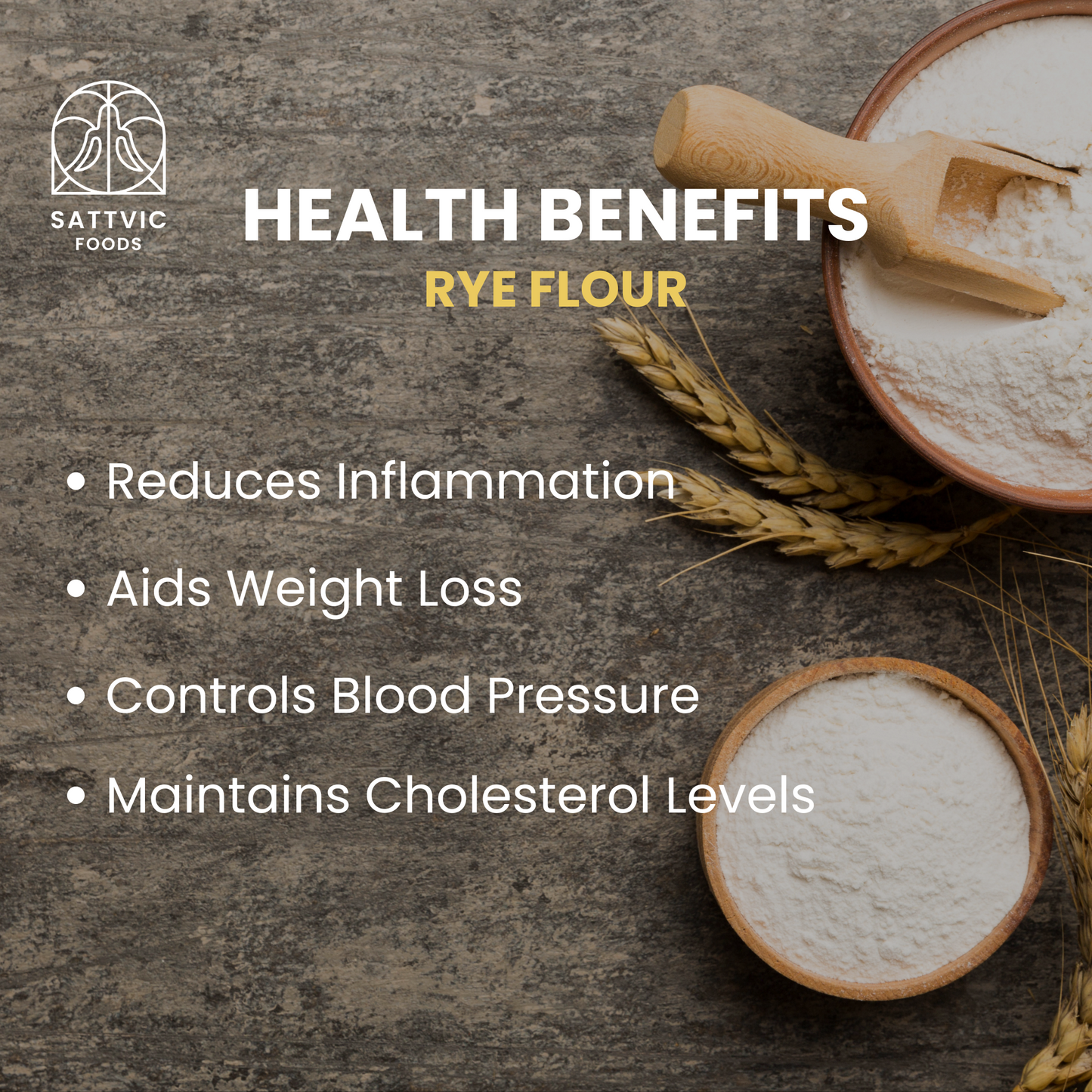
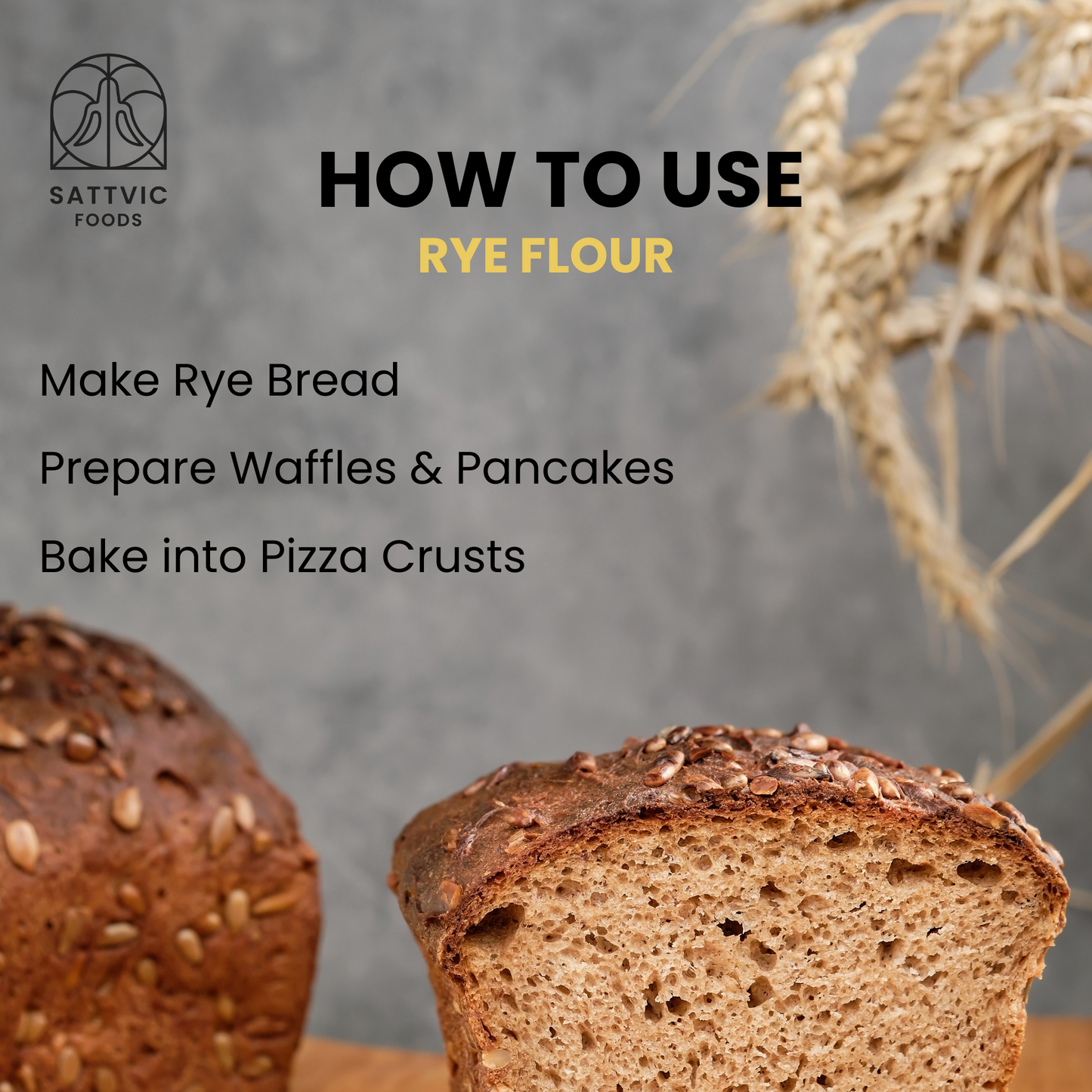
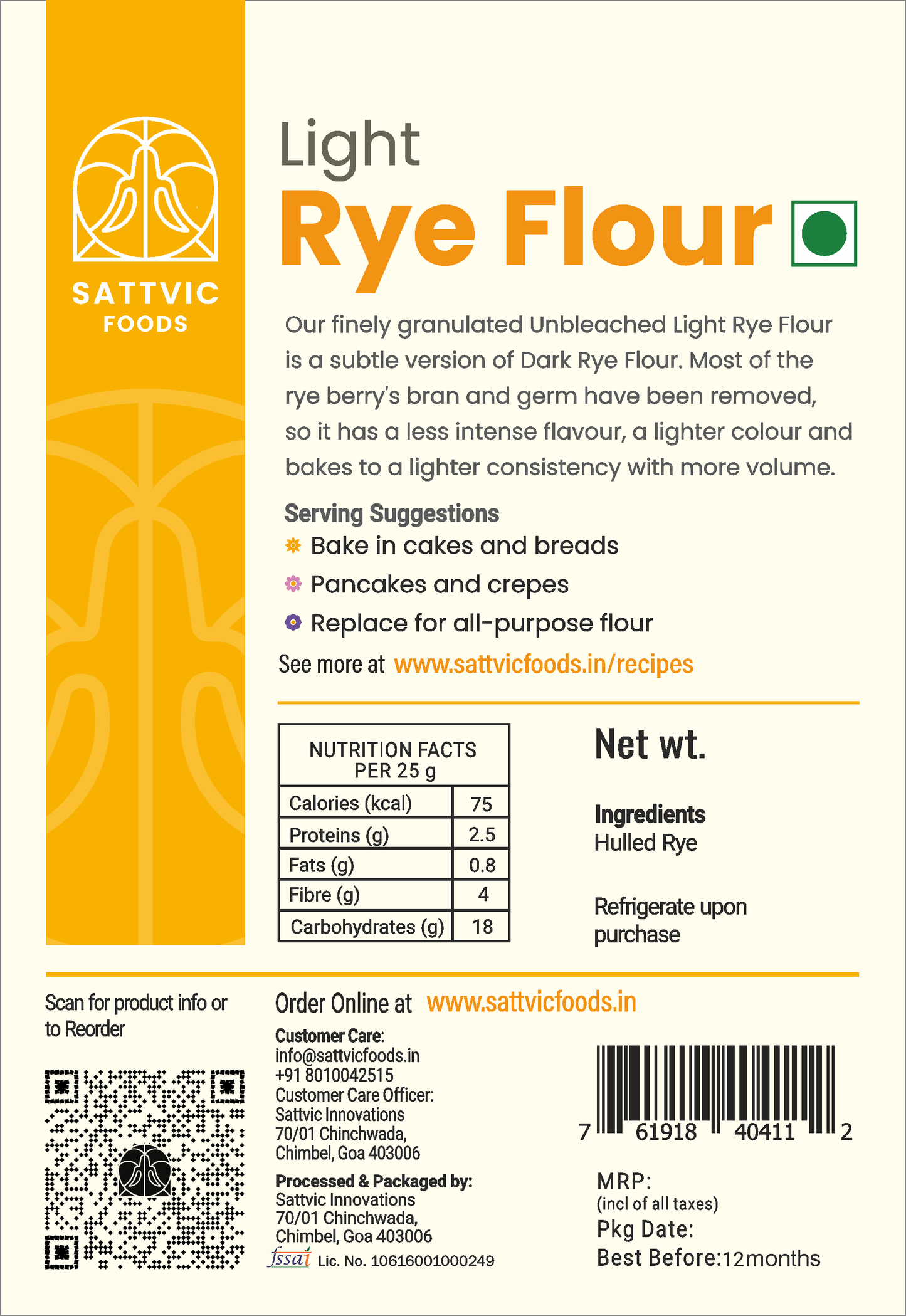
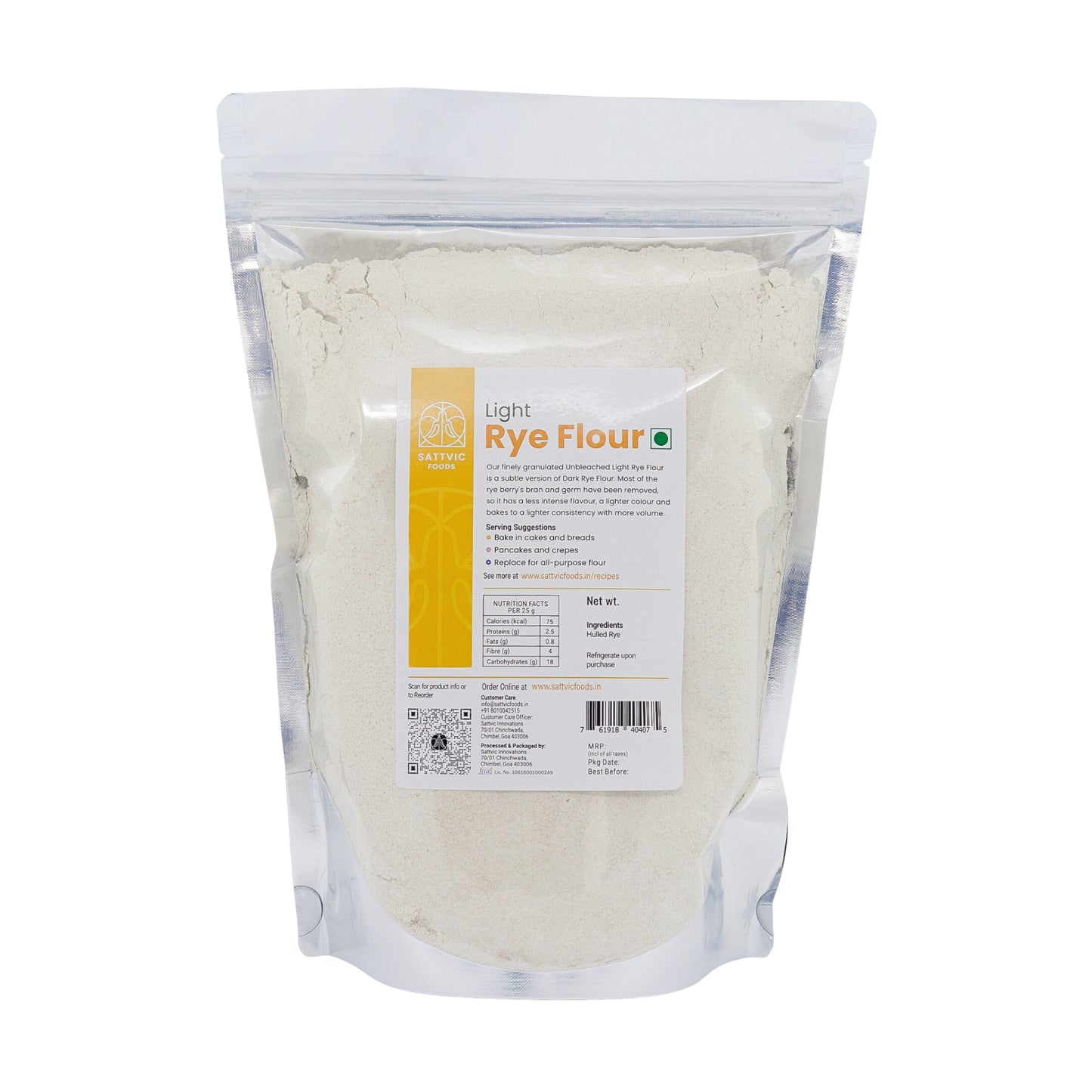
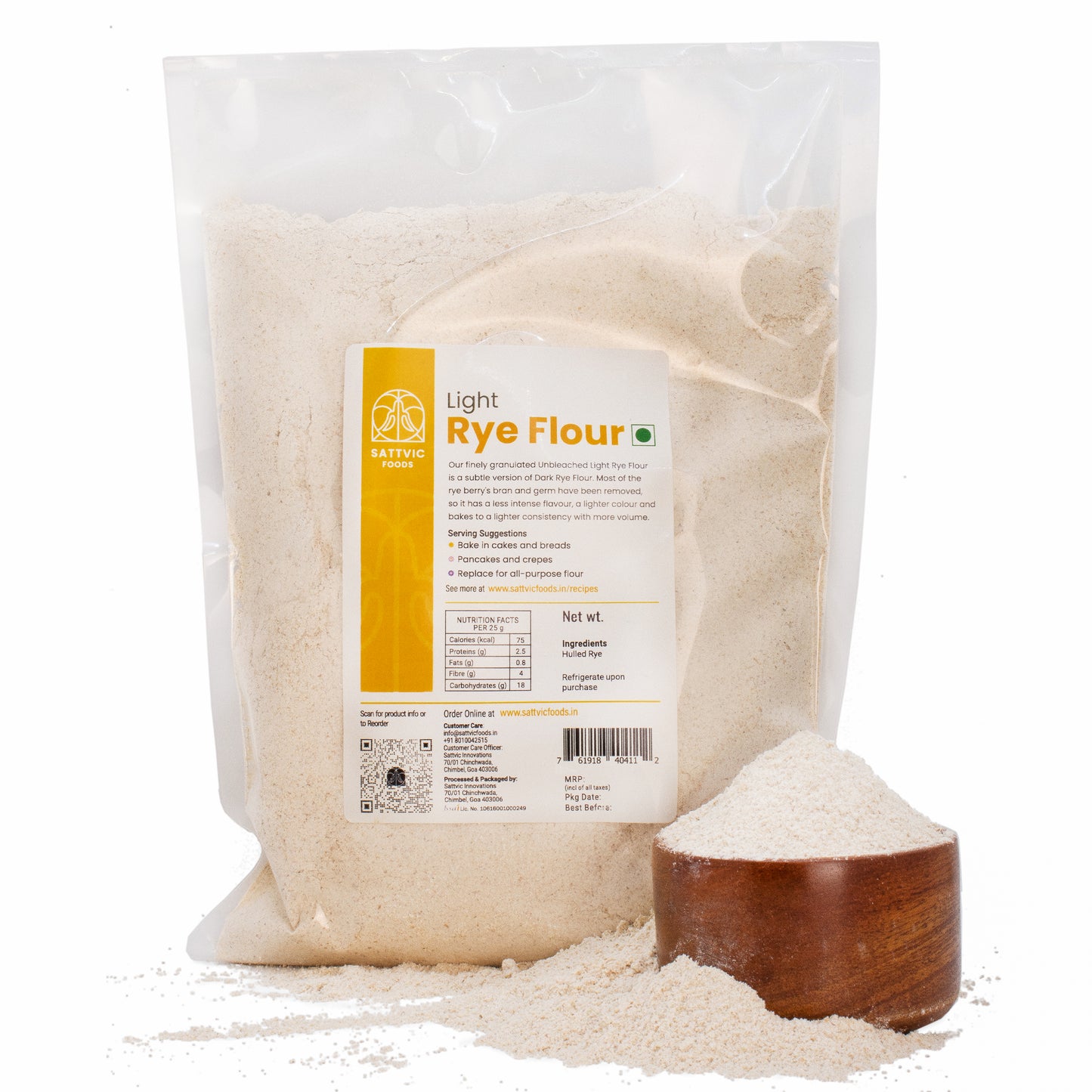
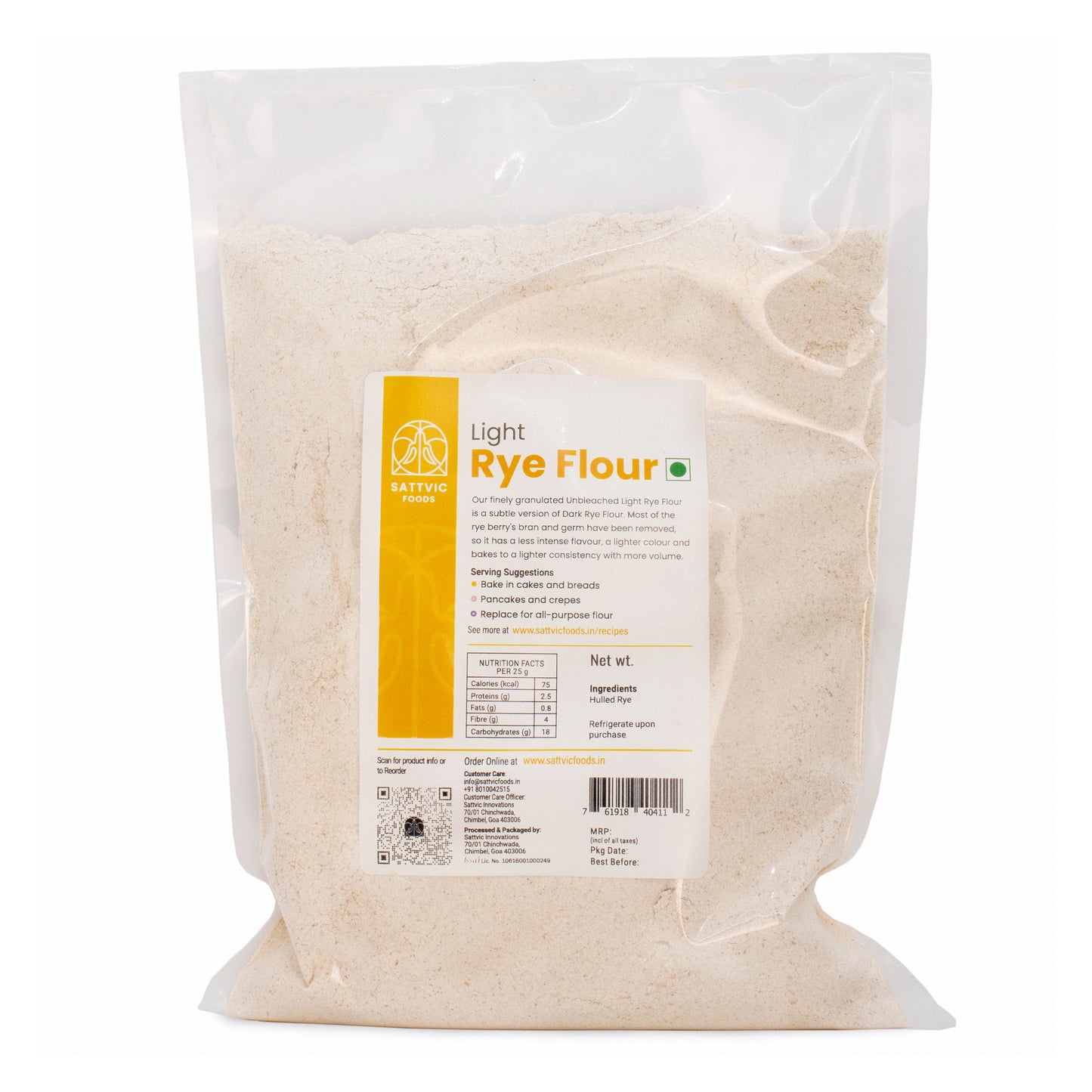
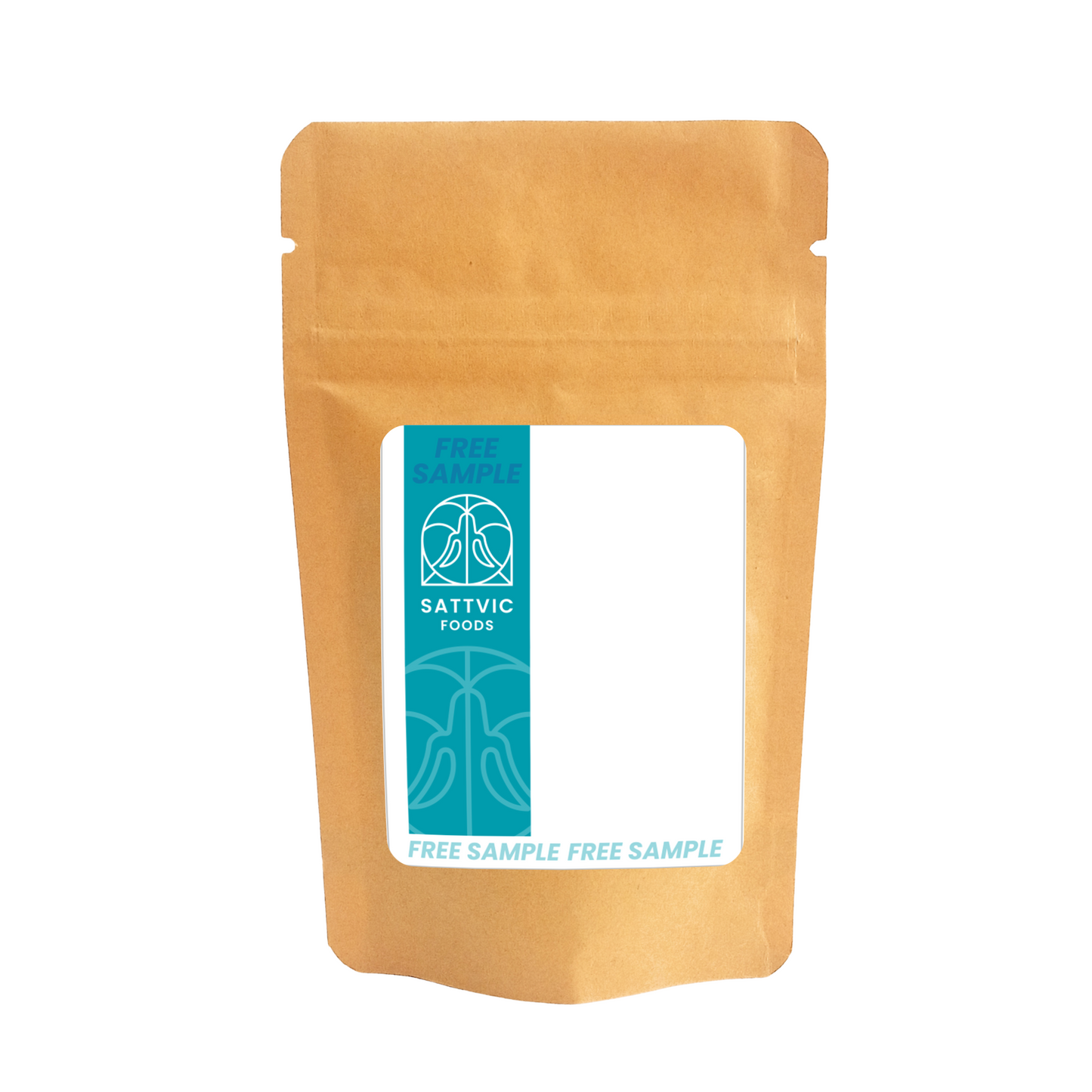
Trusted delivery protection for all your orders
Very Good Service
Nice
Used the rye flour for the first time to make Sourdough bread, just loved it.
Himalayan Rye Flour
Good!


